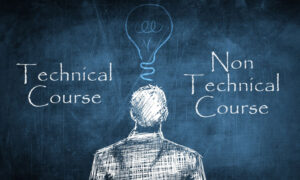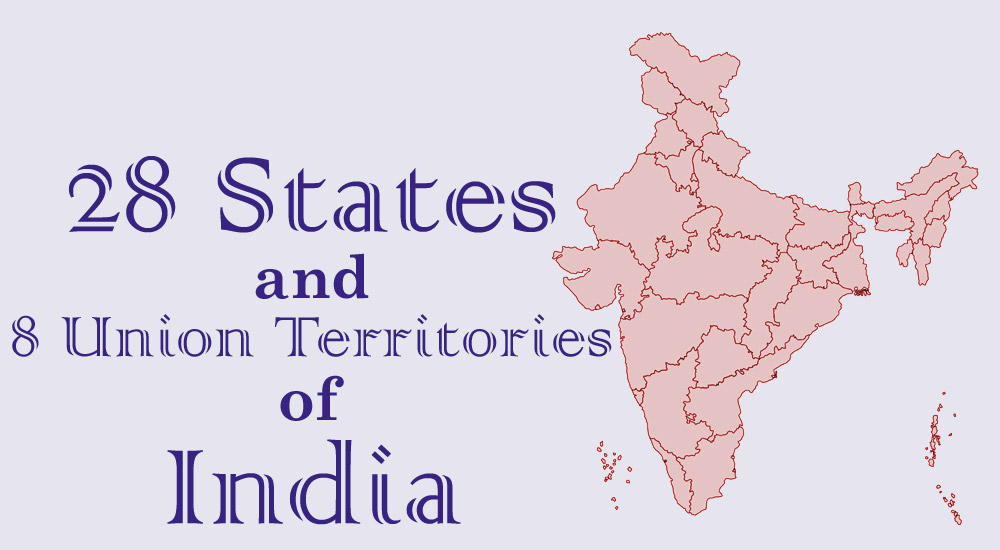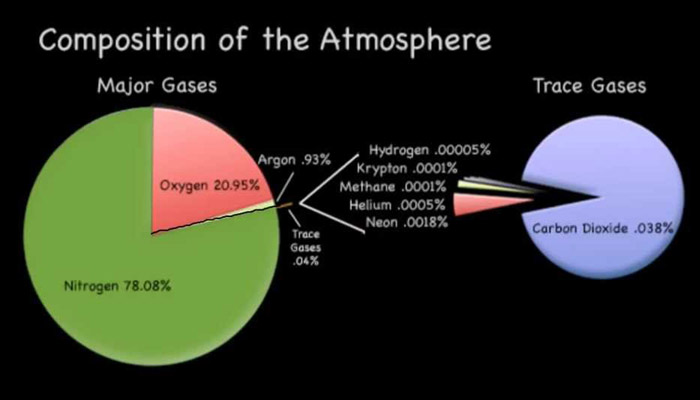Students want to know the difference between Technical and Non-Technical Courses after 12th, on the highway to career. One road goes to technical courses and the other goes to non technical courses. This is a point in life when every student should know the difference between the two types of courses as well as the difference between individual’s Teaching and Learning Methods.

Difference Between Technical and Non Technical CoursesThe first step to making a sensible decision between any two options is to first get information on both, weigh the pros and cons with respect to your context and requirements, and then decide keeping in mind all the key factors. With this view, we bring you a fair comparison between technical and non-technical courses. Read thoroughly to decide sensibly.
Table of Contents
Difference Between Technical and Non-Technical Courses
Being job oriented, technical courses are geared to make you employable. Non-technical courses, on their own, are insufficient to get you high salaried jobs.
Technical courses teach technical skills i.e. job oriented and specialized skills. Engineering, medicine, chartered accountancy, architecture, law, design, hotel management, pharmacy, commercial arts, media, cosmetology communication and journalism, management, biotechnology, food technology, packaging, computer applications etc. are all technical streams. Some of the more popular and well known technical courses post-12th include BE, B Tech, MBBS, B Arch, B Des, BHM, BCA, BBA, B Pharm, Integrated Law course and Integrated chartered accountancy course etc. The primary objective of technical courses is to make the student job ready for a particular sector by the time the course ends.
Non-technical courses are chiefly academics oriented. Their objective is to inculcate you mostly with theoretical knowledge on theory intensive subjects such as social sciences, languages, pure sciences, commerce, economics etc. Popular non-technical courses are the regular BA, B Sc and B Com. While not exactly job oriented, these courses are excellent in broadening one’s knowledge base and acting as a foundation for professional qualifications to be gained after graduation.
Skills and Aptitude Required
Technical courses are much suited for people who are creative, innovative and inquisitive by nature. When you have a definite aptitude towards any particular technical stream, technical courses are your thing, e.g. if you have an aptitude for designing garments, the B. Des (Fashion Design) automatically becomes the technical course to aspire to.
Technical courses are also advised for those who wish to ensure job security at the earliest, or are seeking compatibility with an existing enterprise e.g. if you have a family business, a BBA degree will make you ready to join it in just 3 years after passing school.
The skills and aptitude required for non-technical courses, in contrast, are different. If you have a genuine quest for academic knowledge, or if you wish to carve a career in academics through the grad-post grad-doctorate route, or if you wish to appear for government’s examinations like ICS or Banking and need to strengthen command over key subjects, or are simply undecided about what to settle for in future, non-technical courses are right up your street.
Preparation for Competitive Exams
The ultimate objective of teaching is to equip you with life skills.
As mentioned earlier, admission to technical courses is mostly through competitive examinations that test applicant’s aptitude for the particular stream (theory as well as application of theory to practical problems) along with his/her general aptitude, logic and reasoning. The paper pattern is usually objective type, or may include creative expressions as in NID entrance examinations. Some entrance examinations undertake negative marking too. Often there is an interview as well to test interpersonal communication skills. In other words, the testing is quite comprehensive. Accordingly, an aspirant has to focus on more than just the subject matter. Specialized coaching and mock tests are two popular methods of preparation for technical entrance examinations.
In contrast, if you are opting for a non-technical course with an entrance examination, you will need to know your chosen subject and the language of study medium very thoroughly.
Admission Procedures
A technical course, depending upon individual context, may or may not be open to students from all streams i.e. science, arts and commerce, e.g. to gain admission in BE/B Tech, physics, maths and chemistry at 10+2 level are a must. For B Des, on the other hand, your previous stream is immaterial. Arts, science or commerce, you can sit for the entrance examination.
The admissions to technical courses are usually through competitive entrance examinations (often with long names that are abbreviated into easier acronyms like AIEEE, IIT-JEE, AIPMT, NEED, CLAT, to name a few). Your senior secondary board examination marks mostly work as eligibility criteria for application. In some cases like IIT-JEE, your board marks can carry some weightage too. Notifications for major entrance examinations are released many months in advance.
For non-technical courses, on the other hand, the admission criteria are mostly your class 12th scores, although some universities or colleges may conduct entrance examinations too, usually confined to relevant subject knowledge. Most students continue with their 10+2 stream i.e. science or arts or commerce, but some switching is possible and not at all uncommon either.
Course structure and Learning Process
Being infrastructure-intensive, technical courses are available at a limited number of institutions. Technical courses are also far more expensive as compared to non-technical ones. Technical courses usually take 4 to 5 years, and are divided into semesters. The curriculum includes theory, practicals, project work and training. There is a lot of emphasis on application and innovation. Many technical courses (think IITs, NID, AIIMS) encourage and expect out-of-box thinking from their students. Internships in professional companies are a part and parcel of the educational package.
Non-technical courses, on the other hand, are available not just in metros but also in tier-I, II and III towns. These also have lower fee structure and lay more emphasis on educating through lectures and discussions. These usually have a time frame of 3 years (Delhi University is the only university in India to offer a 4-year non-technical degree).
Job Prospects
Being job oriented, technical courses are geared to make you employable. If done from the top-most institutions, employers make a beeline to grab passing out students, and offer top-of-the line pay packages. Even if done from a reasonably reputed institution, technical courses cut the job headache. Most students get jobs right at the campus interview stage, and if good at work, have higher chances of growth in career. However being specialized in nature, technical courses also tend to limit your further study options.
Many employers that train employees on-the-job prefer non-technical graduate.
Non-technical courses, on their own, are insufficient to get you good jobs. These need to be supported by at least one professional qualification to gain a worthy entry into any job sector. Due to this very reason, for students just out of 12th and as yet unclear about what they want to do in life, non-technical courses can be a good option. They can utilize their 3 years in a non-technical course to gain a broader perspective that will help them make a better choice when selecting a post graduation qualification. Non-technical courses are also much more flexible in terms of future study options.
If done from quality institutions, non-technical courses boost soft skills which later play a key role in bagging better jobs. As a matter of fact, many employers that train employees on-the-job prefer non-technical graduates from A+ institutions over technical graduates from B or C grade technical institutions (Point to ponder for those who are willing to pay a king’s ransom to get a seat in a technical course anywhere, anyhow).
Personality Type Fit for Technical or Non-Technical Courses
Technical courses are good for those with investigative or artistic personalities. On the other hand, realistic, social, enterprising and the conventional personality types are often a great fit into non-technical courses.
Actually and factually speaking there is no clear-cut answer to which of the two is superior. There is no ‘first among equals’ in this case. The real question is which one is better for you? You are the best judge of what you wish to do. Just as beauty lies solely in the eye of the beholder, it all depends on the individual student’s interests, aptitudes, values and personality, and to an extent, on his/her affordability.
The ultimate objective of all education is to equip you with life skills. The so-called ‘tag of prestige’ attached to a technical degree is worthless if you do not feel compatible with what you are studying or practicing it as a profession in future. It is non-debatable that every educated person should have some kind of job worthiness. Whether you acquire it right after 12th or after graduation or on job, needs concern you more.
Make your choice carefully keeping your own self, interests, aptitudes, abilities, values and personality, in the prime focus. After all, it is you who matter the most in the longer run.
Other Useful Links
IndiaTimes.com: Students Can Opt Regular vs Distance Degree Together
IndiaToday.in: Students Can Pursue Two Degree Courses at Same Time
TrinitySchoolofMedicine.org: Essential Tips for New Medical Students
AryaCollege.in: Top Tips for First Year Engineering Students




